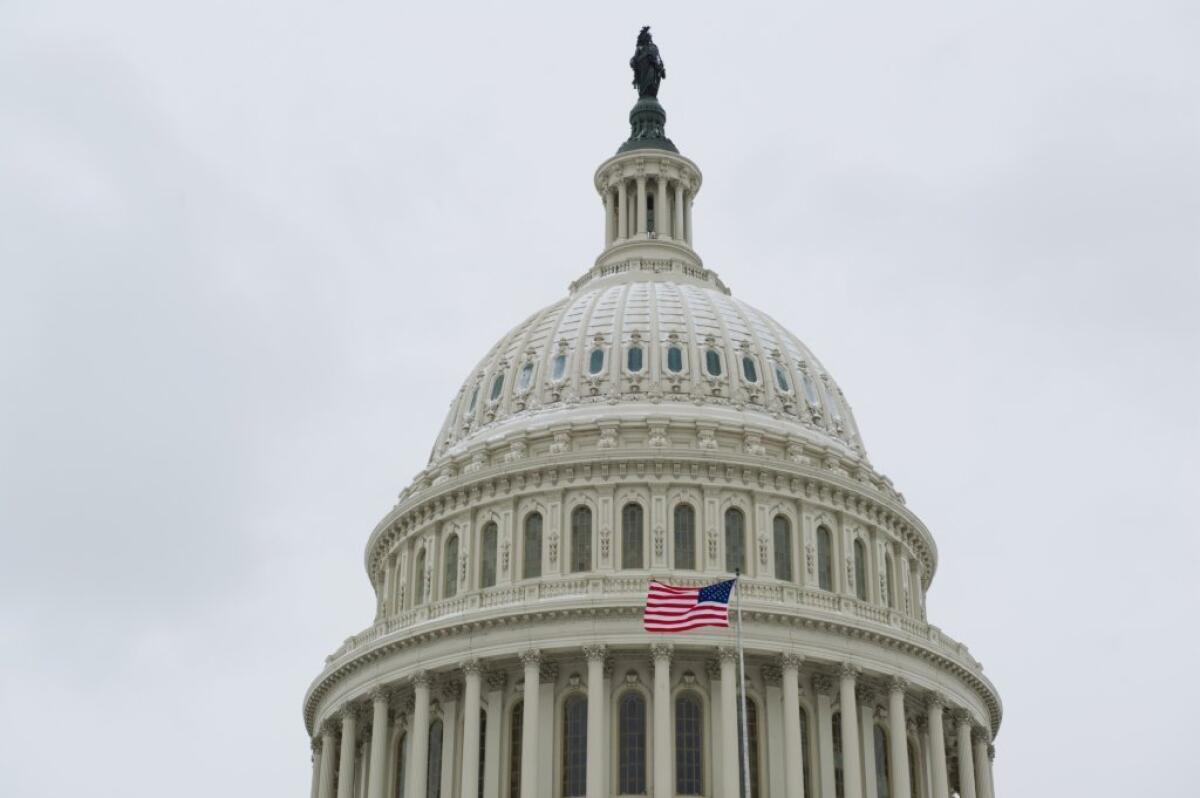Opinion: Jesus in Congress: Actually, most of the prayers there are ecumenical

- Share via
On Monday, the Supreme Court ruled that it was constitutional to begin government meetings with prayers, even if they are overwhelmingly Christian in character. The case involved invocations offered by guest chaplains at town meetings in Greece, N.Y. But there was also discussion of the prayers offered at sessions of Congress. Readers of the decision might be left wondering whether Jesus’ name is regularly invoked in prayers at the Capitol.
In his majority opinion, Justice Anthony M. Kennedy referred to an invocation in the House of Representatives in 2010 that was offered “in the name of our Lord Jesus Christ.” But in his dissenting opinion, Justice Stephen G. Breyer noted that guest chaplains in the House are reminded that “the House of Representatives is comprised of members of many different faith traditions” and they are told that prayers must be “free from ... sectarian controversies.”
So who’s right? Is Congress a (mostly) Jesus-free zone?
It seems that way. Here’s a prayer offered by the chaplain of the Senate, the Rev. Barry Black, a Seventh-Day Adventist:
“Lord God Omnipotent, You are above all nations. Take our lives and use them for Your purposes. Lord, cleanse our hearts, forgive our sins, and teach us to amend our ways as Your transforming grace changes our lives. Today, inspire our senators to be true servants of Your will. In these challenging times, give them the wisdom to labor for justice, to love mercy, and to walk humbly with You. Keep their minds and spirits steady as they strive to please You. We pray in Your sacred Name. Amen.”
There’s nothing in that prayer that a Jew, a Muslim or a Unitarian could object to (though an atheist or Wiccan might protest).
In the House, prayers are occasionally offered in Jesus’ name: On April 29, the Rev. Benny Lee, a guest chaplain, intoned: “We pray this prayer, respecting all faiths, but pray it in the name of our Lord and Savior Jesus Christ.” But they are rare, thanks in large part to the regular House chaplain, a Jesuit priest named Patrick J. Conroy.
Conroy is studiously nonsectarian. His latest prayer, offered on April 28, is typical. It addresses “Dear God,” with no mention of Jesus (or the Virgin Mary, the saints or Conroy’s fellow Jesuit Pope Francis).
The House website helpfully provides an archive of invocations, and I picked two months at random — March and April 2013 — and read all the prayers offered by Conroy and various guest chaplains.
Conroy delivered 17 opening prayers over that period. None mentioned Jesus, though in some of the prayers, Conroy asked God to send “Your Spirit” to guide the assembled politicians, arguably an allusion to the Christian doctrine of the Holy Trinity. On one occasion he also referred to the “two-edged sword of Your Word and Your purity of Spirit.” In Christian doctrine, the word (or logos) of God is Jesus, so this could be counted as a Christian prayer. But “Your Word” could also refer to the pronouncements of a Unitarian deity.
Most of the guest chaplains in this period were equally restrained, but there were outliers. In a rare flirtation with fire and brimstone, the Rev. Brian Lee prayed on April 30: “You are a God who saves. Convict us of all our sins that we might know deliverance from these our wicked ways. Hear this prayer for the sake of the merits of Your only Son, the crucified and risen Lord, Jesus Christ.”
The bottom line is that Breyer is right: Most clergy who offer invocations at sessions of Congress have learned how to pray in an ecumenical and inclusive way. Maybe the town fathers of Greece, N.Y., should hire Father Conroy as a consultant.
More to Read
A cure for the common opinion
Get thought-provoking perspectives with our weekly newsletter.
You may occasionally receive promotional content from the Los Angeles Times.










